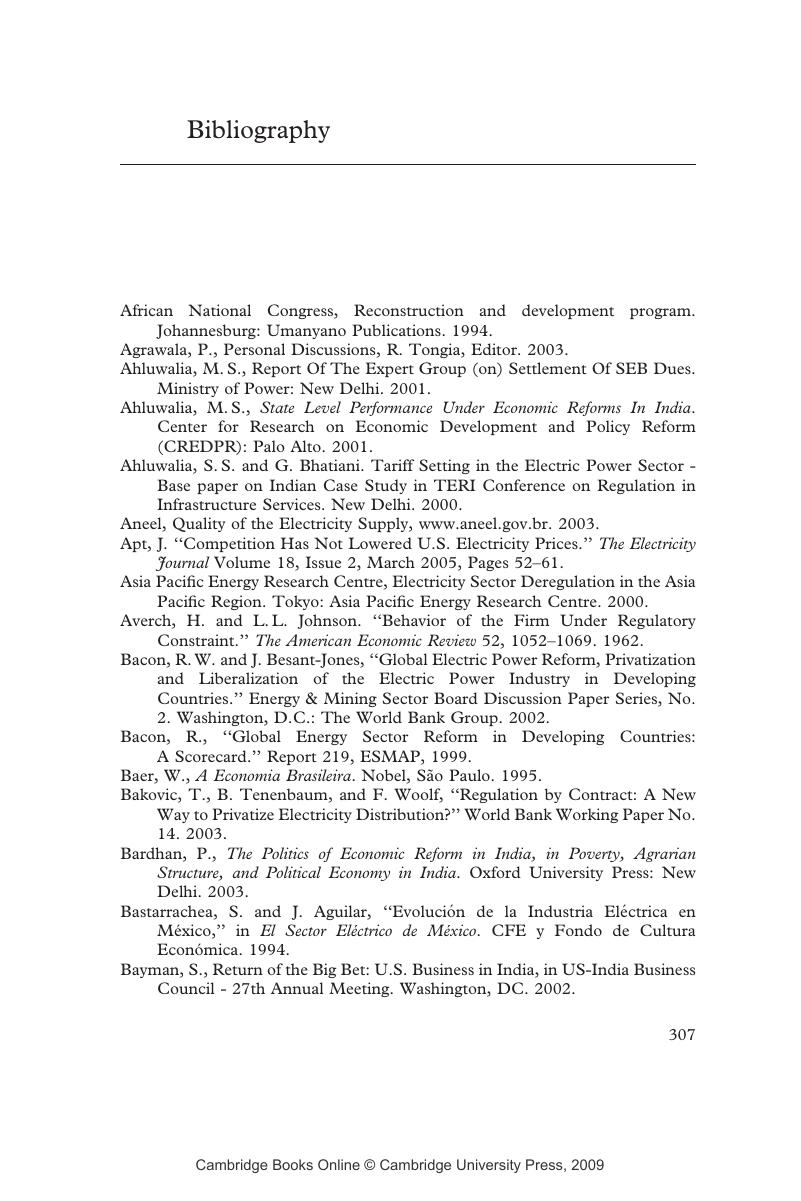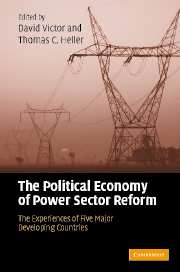Book contents
- Frontmatter
- Contents
- List of figures
- List of tables
- Notes on contributors
- Preface
- 1 Introduction and overview
- 2 Political economy of the Brazilian power industry reform
- 3 Reform of the Chinese electric power market: economics and institutions
- 4 The political economy of Indian power sector reforms
- 5 The Mexican Electricity Sector: economic, legal and political issues
- 6 The political economy of power sector reform in South Africa
- 7 Major conclusions: the political economy of power sector reform in five developing countries
- Bibliography
- Index
- References
Bibliography
Published online by Cambridge University Press: 22 September 2009
- Frontmatter
- Contents
- List of figures
- List of tables
- Notes on contributors
- Preface
- 1 Introduction and overview
- 2 Political economy of the Brazilian power industry reform
- 3 Reform of the Chinese electric power market: economics and institutions
- 4 The political economy of Indian power sector reforms
- 5 The Mexican Electricity Sector: economic, legal and political issues
- 6 The political economy of power sector reform in South Africa
- 7 Major conclusions: the political economy of power sector reform in five developing countries
- Bibliography
- Index
- References
Summary

- Type
- Chapter
- Information
- The Political Economy of Power Sector ReformThe Experiences of Five Major Developing Countries, pp. 307 - 320Publisher: Cambridge University PressPrint publication year: 2007



